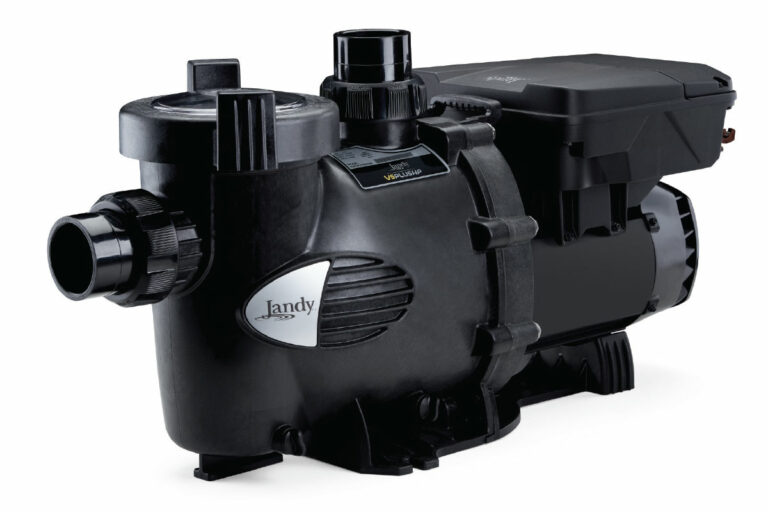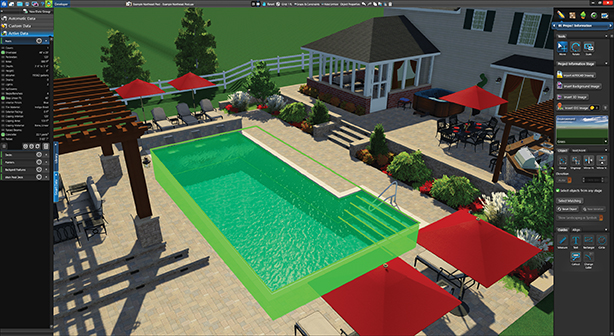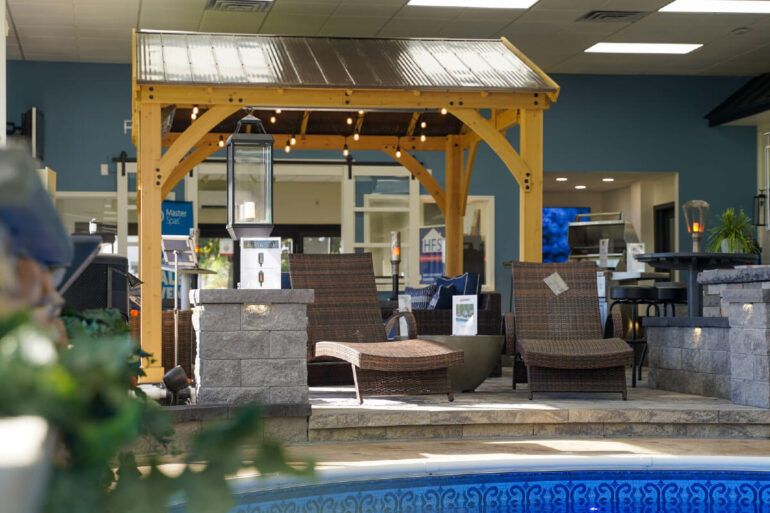Planning to Thrive

Prep your business for 2024
Financial planning can sound like the pits if you don’t know what you’re doing.
However, learning about the process and implementing a plan can relieve stress and help you make the most of what you’ve got. Pool pros who create and track short-term and long-term financial goals can set up their businesses to thrive and be prepared for a successful hand-off in the future.
“The industry doesn’t really have a great track record of planning,” says Bryan Banta, owner of Cross Consulting in Fort Lauderdale, Florida.
Banta was the owner of B&B Pools in South Florida for more than 30 years and has seen the fallout that can occur when seasoned pool pros haven’t strategically planned their exits from the industry.
“The last thing you want to do is get to the point where you’re like, ‘I can’t do this anymore,’ ” Banta says. “And then you go and hand whatever you have over without any forethought — without any planning — to a broker or somebody and hope you get a value that is fair for this 30- to 40-year investment in your business. Planning is absolutely key.”

Use your P&L to create realistic goals
Banta believes the first thing pool pros need to do is create a plan with specific, realistic goals. He says most business owners have some sense of what’s on their profit and loss statements for the year, but many don’t know how to make the information work for them.
“If you’re planning for next year, the P&L can be a tool, but you have to set goals for the year, and then the P&L becomes more valuable,” he explains. “Without a plan, the financial statements are just a history lesson on what you did last year.”
Banta would set aside time at the year’s end to write specific goals for the next year, including the steps he would need to take to see them through.
“That type of planning is how you grow your business,” Banta says. “The P&L is really the tool that allows you to afford it.”
He advises pool pros to be mindful of other parts of the business affected by these goals. For example, if the objective is to increase the number of routes, the cost of adding another truck, hiring another team member, purchasing gas for the truck, insurance and so on will need to be considered. By looking at the P&L and other financial reports, pool pros can honestly assess what it will cost and how long it will take to get there.
David Hawes, owner of H&H Pool Services in Dublin, California, says the P&L is most valuable when used to determine the profitability of whole companies and their individual components. Evaluating everything — from chemical costs to the pricing matrix of whole goods with the history of price increases in 2023 — will give pool pros an idea of what to expect in 2024.
Heather Linton, owner of Swim Carefree and CEO of Integrity Consultants in Carrollton, Texas, says examining the P&L from the prior year is the starting point for the planning process.
Things like consumer purchasing patterns, analyses of the competition and shifts in both government regulation and customer demand are all aspects to keep in mind.
“Goals and objectives for the coming year should be established after careful consideration of the preceding year’s performance and the state of the economy,” Linton says. “Goals may relate to money made, money saved, market share or even geographical growth.”
Analyzing past sales data against current market tendencies can help pool pros get an idea of the upcoming year’s fiscal sales. Linton suggests that goals and objectives for the coming year be established after careful consideration of the preceding year’s performance and the state of the economy.
“Set defined, quantifiable and trackable goals,” Linton suggests. “You must track your goals. If you don’t, how will you know if your goals are being met? Make them realistic and achievable. Unrealistic ambitions can demoralize.”

Don’t let budget challenges get the best of you
Industry fluctuations, supply chain issues and seasonal factors can make budgeting feel overwhelming or not worth the effort.
Hawes says it would benefit everyone in the industry to plan on increasing customer prices to offset the percentage of increases for materials used and services provided.
“This is always a big challenge for budgets prepared many months in advance,” Hawes says. “Almost everything involved in our budget has increased or will increase, so if our prices don’t take that same trajectory, our margins will be less and our budgets will be significantly impacted.”
Hawes believes the biggest challenge for the pool industry is pool pros making time to actually look at their numbers.
Far too often, we spend time getting work done without looking at whether or not we’re doing it profitably. While this process should be done continually, it is always difficult during the busy months to find out if we’re even making money.”
David Hawes, H&H Pool Services
“Far too often, we spend time getting work done without looking at whether or not we’re doing it profitably,” Hawes says. “While this process should be done continually, it is always difficult during the busy months to find out if we’re even making money.”
He suggests pool pros look at the areas of their companies that are not meeting margin expectations and make the pricing changes there so they don’t wait until the end of the year to determine their financial health.
“We all need to place a dollar value on spending that time reviewing everything the same way we do when preparing an estimate,” he says.
Linton says the biggest challenge with new budgeting is labor. “It can be difficult to find and keep qualified workers, particularly during high-demand times of the year,” she says. “Wages, benefits and overtime are only some of the labor expenses that must be factored into the budget.”
It’s a competitive field, and there may be price constraints to meet to secure jobs, she adds.
“The best way for swimming pool contractors to face these difficulties head-on is to do extensive market research, data analysis and financial planning,” she says. “The budget can be better adapted to changing conditions if it is regularly monitored and adjusted throughout the year.”
The best way for swimming pool contractors to face these difficulties head-on is to do extensive market research, data analysis and financial planning. The budget can be better adapted to changing conditions if it is regularly monitored and adjusted throughout the year.”
Heather Linton, Swim Carefree
Linton suggests pool pros add other services if they’re struggling to keep a steady flow of income. For example, pool pros in regions where it snows could add snow plowing to their seasonal services. Other simple add-ons could include leaf blowing off the pool deck, straightening up furniture, picking up pool toys, pulling weeds and grass from around the equipment area or window cleaning. Services that don’t require extra training for team members are easy ways to increase income.
“Our industry has trouble maintaining a steady cash flow, especially during the off-season when consumers are less likely to pay on time,” Linton says. “Maintaining a steady flow of income is essential for paying bills on time.”

Have the exit in mind
Banta believes financial planning isn’t just about being successful now; it’s also about creating a legacy worth leaving behind.
“I used to joke all the time that most people in our industry don’t really own a business, what they own is a 60- or 70-hour-a-week job,” Banta quips. “When you get to a point in your life you’re thinking about the next phase, that process needs to happen years in advance.”
Banta suggests pool pros ask themselves how they can transition some of the key roles of their businesses onto other team leaders.
“You start thinking about, ‘How do I get some of this stuff I’m doing off me so that I can have some work-life balance, and how can I build a business that could sustain itself without me?’ ” Banta says. “That’s the ultimate goal.”
Banta suggests having a plan to hire leaders and create processes where things can continue to function whether you’re there or not. Hiring a financial advisor or seeking wisdom from someone else in the industry can be worth the time and money.
“If your family and friends don’t have experience in doing what you’re trying to do, then they may not be the best people to call, right?” Banta says. “Sometimes, you have to pay for good advice.”






